











































































































































































INTERVOL: WHY YOU SHOULD VOLUNTEER ABROAD PAGE 19

travel across campus. Our website, theuoblinguist.co.uk, is also continually updated with a myriad of articles for our readers.
You can get involved by writing an internationally inspired article at anytime you like and sending it to our email or social media pages! We are always looking for new writers. Our English and native proof-readers, editors and design team are all on hand to make your articles look spectacular, so don’t wait to get involved. Having published work is amazing to have on your CV and our society, which hosts socials throughout the term, is great fun to be a part of.
We hope you enjoy our latest and first multi-lingual issue of the year. We have some fantastic articles for you to check out like Emily, Mary, and Yasmin’s Spanish article on life as an au pair and Hannah Grisley’s How to Speak Chinese in Three Weeks. Also, we are especially proud to include in this issue, for the first time ever, a Yoruban section! Yoruban, one of the three main Nigerian languages, is the first (hopefully of many) African language to be included in our publication. We are pleased to welcome our newest editor Mimi Umeano Nkposong to the team.
We are now collecting articles for our next issue, out in January, so please do get involved!
PAGE 3: CURRENT AFFAIRS
PAGE 5: CULTURE
PAGE 7: TRAVEL
PAGE 9: LIFE & STYLE
PAGE 10: FOOD & DRINK

PAGE 11: ESPAÑOL
PAGE 12: FRANÇAIS
PAGE 13: РУССКИЙ
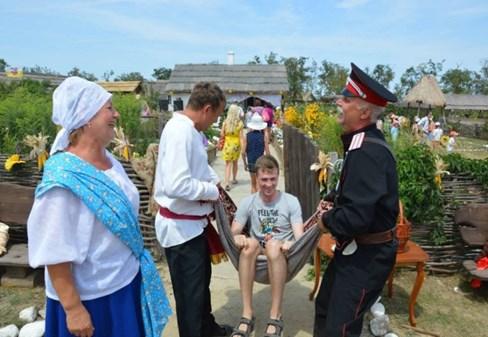
PAGE 14: DEUTSCH




























































PAGE 15: PORTUGUÊS
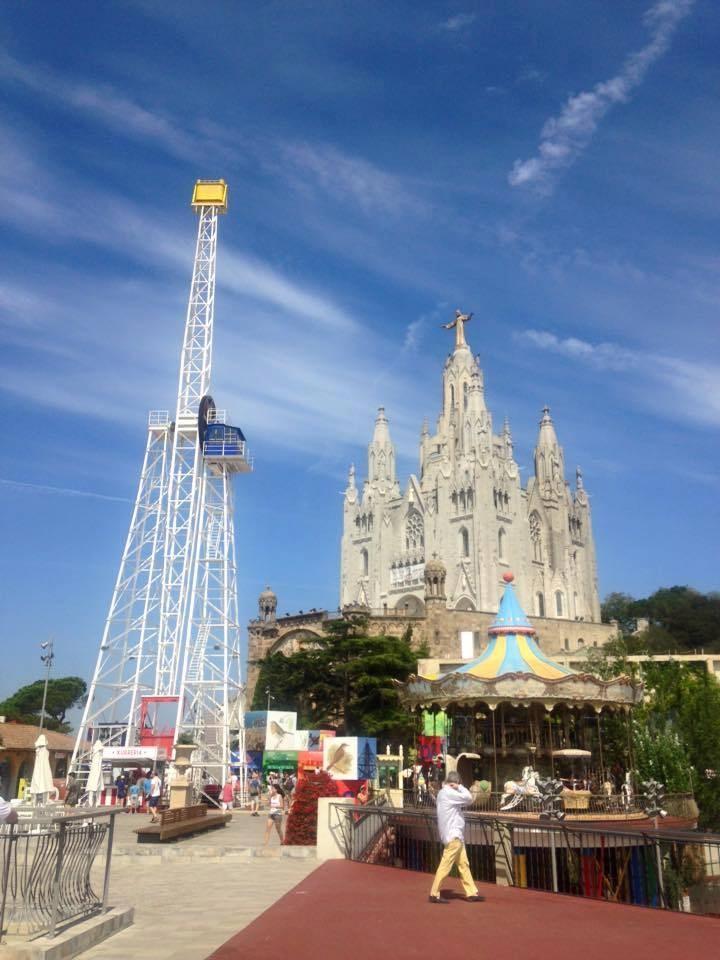
PAGE 16: ITALIANO
PAGE 16: YORUBAN
PAGE 17: ΕΛΛΗΝΙΚΑ
PAGE 18: 汉语
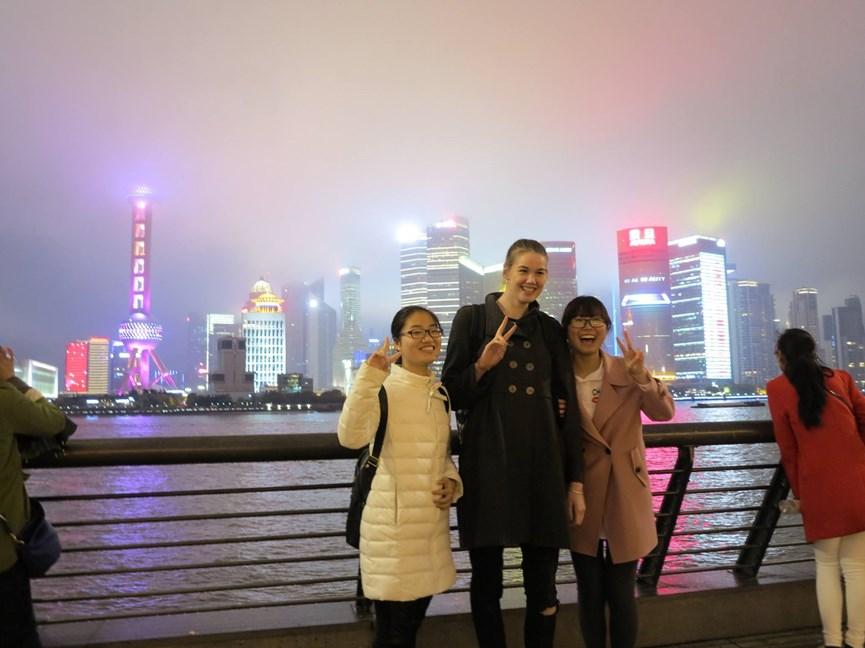
PAGE 19: SPECIAL REPORT
If you would like to know more about our magazine, our writers or have comments to make about our articles then feel free to check out our Facebook and Twitter pages or email us. If you wish to read more articles check out our website. We’re always looking for new writers and contributors, so don’t hesitate to get in touch!

linguist@guild.bham.co.uk


I enjoyed Chemistry a lot during Secondary School. I was proficient at it too, often representing my school at Chemistry competitions in Manchester. The competitions were a series of challenges in the lab, peppered with discussions from a company spokesperson or the odd professor. One discussion has been lodged in my head since, about efficiency in industrial production.
Such a topic renders grown men swirling in day dreams, let alone a sixteen year old. It was the reason behind the drive for efficiency that made me wipe away my fringe and focus. The speaker switched the projector to a ballooned periodic table of elements. She told us that we were running out of resources. Every click of her remote caused the white stature of that table to dissipate, another swathe of invading colour. After two clicks she pointed to the remnant of white that survived, stating ‘we simply don’t have enough data to say when these elements will be extinguished.’
My memory has returned to that periodic table over the past few years. The speaker’s message that humankind had almost hollowed out the earth seems to be increasingly pertinent. I am not an environmentalist, but I believe we are staring at the bottom of the barrel.











Recently, we have turned to deposits once deemed inaccessible to keep cars running and factories billowing. Accessing these deposits has required novel methods, with consequences we do not comprehend. Officials may say otherwise, but if one looks at the progress of technology it has always been trial and error. Asbestos was widespread before we discovered it caused cancer. We have been using oil rigs and tankers for decades, yet they still break and spill their black guts across the ocean floor. Countries and companies alike have begun to exploit shale gas and oil through fracking. America has pioneered this revolution, not without controversy amongst the Western states. Outcries have arisen from communities surrounding these fracking installations about environmental damage and health problems. Some locals’ taps now run methane gas rather than water. It may not be long before we see the extraction of methane hydrate, basically frozen methane crystals, from the continental shelves below the sea. If we do not extract it, the methane could be released as global warming sheers the ice away. Such a large scale escape of methane would have catastrophic effects on our environment.
Nations are vying for the farthest corners of our world and beyond for resources. The Arctic is melting apace compared to predictions. Soon the landmass’ resources will cease to buried in ice, and ripe for plunder. The countries surrounding the Arctic are already scrabbling for territory. China has begun to invest in Greenland and Iceland, both neighbours to the Arctic.
“I’M NOT AN ENVIRONMENTALIST, BUT I BELIEVE WE ARE STARING AT THE BOTTOM OF THE BARREL.”By Saul Shimmin

Beyond our world, China is heralding the second wave of lunar exploration for Helium-3. This isotope is scarce on Earth, and the little that exists has already been seized by major powers. On the moon, Helium -3 is bountiful, and its energy returns are astounding. One ton could power most of Hong Kong for a year if modern science can master nuclear fusion. The potential harnessing of Helium 3’s energy output as a weapon is possible. Some believe that the Helium-3 is ushering in the next generation of nuclear weaponry. China’s Chang’e (the word for the Chinese goddess of the Moon) space program may soon be delivering lunar soil rich in Helium-3 to earth. Only six years ago Helium 3 dwelt in science fiction, a central part of the sleeper-hit ‘Moon’ by David Bowie’s son.
When people talk about going green, recycling, reusing, carbon reduction, a truth is omitted from the dialogue. A maxim about human nature. We are always going to put ourselves above all else in the world, because rarely do we see beyond ourselves and those around us. Calls for protecting the environment have been ringing since the 1960s and their volume has risen over recent years. Despite all the forewarning of the foreboding events to come, we still drive, take that cheap flight to go on holiday, and leave the laptop on standby. I am guilty of two of those things. We will sacrifice every branch and every blade of grass before relinquishing the comforts we have amassed. There is no stewardship, only consumption. The world’s population is hurtling beyond capacity. Nations in the East and in the South want the lifestyles we have in the West. An army of chimneys from factories and power plants shall sprout forth to give these countries all the electric screens and designer jeans they want, all guzzling what energy remains in the ground.
The ‘Buffalo’s extinction’ shows our history with resources. During the 19th century there was a huge demand for the products from buffalo corpses. Men went forth and hunted them so well that the population plummeted. The herds thinned to straggling bands and all the while men still hunted them, lay upon the prairie with their rifles and picked them off, down to the last sorry one. When it was done, the men who had once hunted the herds put down their guns and turned their hands to other things, other jobs. I’m sure the passing of the buffalo was mourned by some, yet it happened with the quiet belief that another thing would come to be prized and men could extract that instead. The same applies to minerals and energy. We assume something new will be found to replace what we have extinguished. A new life blood for human society. We just keep walking into the blindness. This time it is different, free space is dwindling, countries are now competing over water and fishing rights. We are turning to more extreme methods to get the energy and materials we need to keep producing, and the human cost will rise.










Humanity is entering a bottleneck. One where we shall either buckle under the pressure, or it will hurtle us centuries beyond expectation.

“WE ASSUME SOMETHING NEW WILL BE FOUND TO REPLACE WHAT WE HAVE EXTINGUISHED. WE JUST KEEP WALKING INTO THE BLINDNESS.”


Lauren Laverne announced the shortlist for this year’s Mercury Prize on her BBC 6 Music radio show last week. Over its 23-year span, a panel of musicians, producers, journalists and other prolific figures in the music industry have chosen 12 nominations for the best album released in the United Kingdom and Ireland of that year, this year from 290 entries. The list does not include the bookie’s front-runner, Everything Everything, but does feature the likes of big name acts Florence + the Machine and Jamie xx, as well as some lesser known acts including Benjamin Clementine, Eska and SOAK.
Aphex Twin – Syro: After a 13-year absence, Richard D. James, better known as the electronic musician Aphex Twin, released his sixth studio album Syro. Some of the songs are six or seven years old, which explains why the album’s sound is so far from recent electronic music. There are no huge drops or guest vocals, instead James continues in his own playful and ambient vein, building on his already well-established drill’n’bass foundations.
Favourite track: produk 29 [101] If you like: Jon Hopkins, Plaid, Four Tet
C Duncan– Architect: A classical music graduate from the Royal Conservatoire of Scotland, Duncan recorded the entirety of his debut album in his bedroom in Glasgow. Also a keen artist, Duncan painted the album cover himself, which features a bird’s eye view of the city. His debut album mixes intricate choral arrangements with a pop basis, a style that he himself describes as ‘not necessarily a Glasgow sound’.
Favourite track: Garden If you like: Unknown Mortal Orchestra, Belle and Sebastian, Melody’s Echo Chamber
Ghostpoes– Shedding Skin: Obaro Ejimiwie, otherwise known as Ghostpoet, was a member of last year’s panel and this is his second Mercury nomination, the first being for his debut Peanut Butter Blues & Melancholy Jam. Ghostpoet’s deep baritone vocals are joined by guest vocals from Paul Smith of Maxïmo Park and Lucy Rose and his third album deals with issues of domestic abuse and homelessness, set against bleak, and at times vacant, instrumental background.
Favourite track: Off Peak Dreams. If you like: SBTRKT, Jamie Woon, The Streets
Jamie xx – In Colour: Already a Mercury Prize winner as part of his band The xx, producer Jamie xx, real name Jamie Smith, recorded his debut solo album over six years and is tipped as one of the favourites to win this year. The majority of songs on the album are instrumental, there are also tracks featuring vocals from his band members, Romy Madley Croft and Oliver Sim, as well as other artists including Young Thug, making In Colour an eclectic mix of electronic, indie and hip-hop.
Favourite track: Obvs (Stranger in a Room comes in at a very close second) If you like: The xx, Mount Kimbie, Jai Paul Slaves – Are You Satisfied? This is the debut album from Kent based drummer and singer, Isaac Holman, and guitarist, Laurie Vincent. They offer an accessible insight into punk music, combining mosh pit inducing melodies with lyrics that deal with the issues that affect Britain’s youth today. The album’s energy is conveyed especially effectively when performed live and a listen to their cover of The Chemical Brother’s Go is highly recommended.
Favourite track: Sockets If you like: Drenge, Sleaford Mods, Jamie T
(The winner of the 2015 Mercury Prize will be announces on Friday 20th November on BBC Four and BBC Radio 6 music.)




 Hope Brotherton
Hope Brotherton
Halloween: a tradition that is typically associated with our friends across the pond, despite being of Irish origins. Due to its Americanisation can we now say that Halloween has been well and truly popularized into a mere game of trick-o-treating, or do traditions still linger in some far-flung corners of the globe?
In fact, Halloween traditions are very much alive and soon to be in full swing. Just south of the American border in Mexico and Latin America and over in Spain, a three day celebration gets underway from the 31st of October to the 2nd of November. ‘Dia de los Muertos,’ as the holiday is termed, literally means ‘Day of the Dead’ in English, and is a holiday that honours dead ancestors and loved ones. Altars are decorated in the home with candles and incense is burnt to guide the spirits to their earthly home. On the 2nd of November, family members gather at the grave to pay their respects.
Another collection of countries that celebrate Halloween in their somewhat traditional style is Scandinavia. Americanised Halloween culture is still rather new in this corner of the globe, as a tourist you would only spot the occasional Halloween themed shop. That being said, in recent years celebrations have become more popular, for instance in Copenhagen pumpkin carving takes place in the Tivoli Gardens. And in Stockholm, the largest celebration in Scandinavia takes place with a parade on the 1st November. Perhaps this lack of enthusiasm is due to ‘fastelavn,’ another dress-up occasion, which takes place earlier in the year. Children dress up, treats are given out, and the festival’s symbol is a black cat… sound familiar?
So, wherever you are this year embody these local traditions, before we live in an Americanised Halloween and it’s too late.

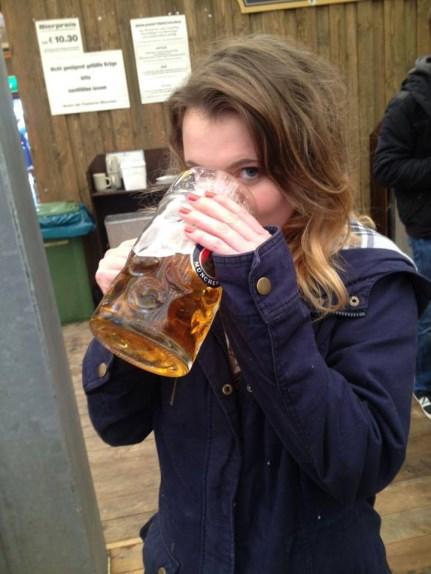





 by Abbie Priestley
by Abbie Priestley
Having never been to Germany, to say I was excited about the Erasmus society’s trip to Oktoberfest is understating it. So along with my motley bunch of multinational students, we rustled up our best German, sandwiches and as much enthusiasm as we could for the 8 hour coach journey ahead.
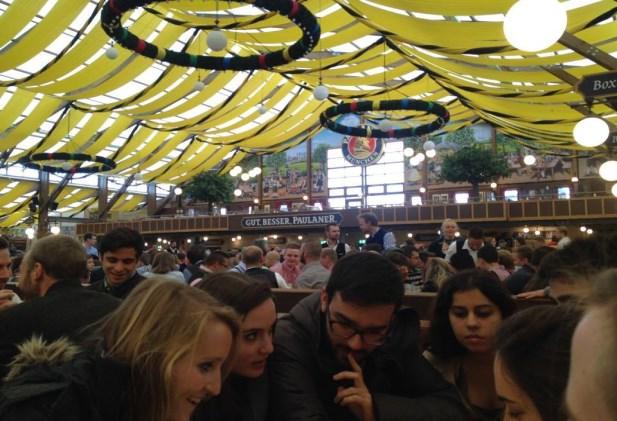

Approaching the Thereseinwiese, we were greeted by the statue of Bavaria herself, and drank in the sight of rollercoasters, oversized beer statues and lederhosen-ed people, wrinkling their noses at the aroma of beer and piss. We sat outside while a stern overhead voice told us the rules of the beer tent. We would be allowed into the tent one table at a time, going out of turn would get you barred, cash only. Intense. However once inside the atmosphere immediately lightened, we grabbed a table and marvelled at the strength of the dirndls hurrying about with their trays of stein (that’s a 2 pint glass to us).
What then occurred was glorious, it was time for stein; beer flowed, pretzels flew overhead, a brass band started up, alternating with the overhead speakers which blasted out EIN PROSIT every ten minutes amidst tunes like ’Sweet Caroline’. By 11 most people were dancing on their benches, food everywhere: numerous plates of sausages, chicken and stew. By half one we made our way outside, as the best thing to do after a good beer is to find yourself a rollercoaster or three.
The weather was fantastic and the crowd bustled around, wielding schnitzel and gingerbread. Bavarian dress was worn by most, and it’s a crying shame, but I can never see embroidered shorts and knee -length dresses taking off in England. When we finally got back to the coach, it was with a sense of dejection, and a determination to return!











 Hanna Grisley
Hanna Grisley
’ or ‘it’s difficult to describe’ is an expression that I learnt in China, which aptly summarises my trip. When I was offered the opportunity to travel and study at Zhejiang University in China in April 2015, I immediately accepted it; however, it is difficult to describe the vibrancy and sensory overload of China unless you have experienced it yourself!
This April, I travelled to Zhejiang University where I fell in love with the city of Hangzhou and the Chinese way of life. The Study China Programme is a 3-week intensive Chinese language course designed to develop your written and spoken language skills whilst living like a Chinese university student. Best of all, the UK Government funds the tuition, accommodation and costs for any organised trips. Like normal Chinese students, I shared a room with another girl from the Programme and ate meals in large, industrial-style canteens. Whilst these living arrangements may sound far from ideal, I loved the authenticity of them all, even the guessing games of choosing dishes using rudimentary phrases and sign language. Everyone works together to adjust to the Chinese lifestyle, which does take time to get used to. As a big group of touristy students, we accumulated a large group of ‘admirers’ wherever we ventured; Chinese locals and fellow students were always being so welcoming and recommending us places to visit. Being involved in nightlife was a popular way of becoming acquainted with China and other students; compared to the UK, going out in China is extraordinarily cheap. KTV or karaoke was usually £10 per person and was always a guaranteed night of hilarity and bonding, whilst meals can be under £2 and a bottle of beer was 50p.
On the weekends, we were able to venture further afield and I travelled with some friends to Shanghai. It was 150km away, but with tickets costing 100 ¥ or £10 for the high speed train, we arrived in the city in under an hour! Weekends were full of opportunities to explore and experience the local culture and food, whilst we tried to haggle in street markets using phrases learnt in class. It doesn’t matter if you’ve never seen Chinese characters before or you’re studying it as part of your degree because there are classes for all abilities. Most students were complete beginners, but for all of us, the early mornings and teaching style were very different to what we’re used to in the West: it is tough and fast-paced. As Chinese is a part of my degree, I was placed in an ‘Advanced’ class where I met international students who were studying abroad for a year. While the daily vocabulary test was a challenge, my progress and confidence in Chinese has multiplied. I also chose an additional module in an area of interest: Chinese Business Culture, Nation and Nationalism or Chinese Media. All of which were taught by Chinese professors and so gave us a fascinating insight of China from their perspective.
These 3 weeks were some of the best, most unforgettable times of my life and I would definitely do it all over again. I don’t think that many of us would normally have this opportunity to live and learn for free in such an exotic country; the Study China Programme is a perfect chance to do just that! And it beats – hands down – the alternative way of spending your Easter holidays: revising for your summer exams!
For more information and to apply now, visit: www.studychina.org.uk

“I DON’T THINK THAT MANY OF US WOULD NORMALLY HAVE THIS OPPORTUNITY TO LIVE AND LEARN FOR FREE IN SUCH AN EXOTIC COUNTRY”












 by Emma Vaughan
by Emma Vaughan
Every year, thousands of people flock to the German Christmas market set up in the centre of Birmingham to celebrate the festival as it is considered to be one of the biggest, most authentic markets outside of Germany. But last year I decided I wanted the full experience and visited Cologne a few days before Christmas.
Cologne, the fourth largest city in Germany, lies in the North Rhine-Westphalia region on the Rhine River. It is a popular tourist destination at this time of year due to the impressive array of Christmas markets on offer, boasting seven in total and each as beautiful as the last. The hotel I stayed at had a view of the ‘Cologne Harbour Christmas market’, which, whilst small, had a cute, friendly atmosphere with its nautical themed merchandise and decoration.
I took a walk along the river and made my way towards the Christmas market that lay at the foot of Cologne’s gothic style cathedral. This cathedral provided an impressive backdrop to the twinkling canopy of fairy lights that surrounds a Christmas tree, designed to mimic a starry night. Its shadowy appearance contrasts with the warmth and buzz of the market to create an atmosphere I have never before experienced. As I walked around, all of my senses were attacked with the gorgeous smell of roasting nuts and beer, joyful Christmas music and live choir performances along with lights of all colours everywhere I looked. During the day, for a small charge, I climbed the cathedral’s largest spire and looked down on Cologne from a dizzying height. From here the red roofs of the Christmas markets and pastel coloured houses made Cologne look like a child’s toy town, as if I could just pluck the buildings from the ground. I walked further through the city of Cologne to reach the Christmas Market on the ‘Alter Markt.’ I was pleased to discover that here they set up a huge ice-skating rink in which you pay once and use for as long as you wish. This area makes for impressive photos, especially with its whimsical children’s merry-go-round and lit up statue in the centre of the rink. This market truly gives you a feel for what Christmas is about with its handmade gifts, laughter filling the air as children ride the merry-go-round, people skating with their friends, the smell of hot food filling the air and the area filled with a warm glow from the Christmas lights.
There are plenty of other things to do if you are after a change of pace from the markets. Along the river is a bridge in which couples and friends attach a padlock, or ‘lovelock’ and follow the tradition of throwing the key into the river once it is attached. If you are good at navigating foreign public transport, then consider a trip to ‘Teamescape’ which is one of the most interesting excursions I have ever been on. This is a ‘live escape’ game, in which you are locked in a room and have to figure out the clues in order to escape in under an hour. It is pricey, but definitely worth a go! Or visit Glowing Rooms, a 3D glow-inthe-dark mini golf which, whilst hard to find, is a lot of fun once you get there!
Visiting Cologne at Christmas was one of my most memorable trips due to the atmosphere and variety of things I could do. If you enjoy Christmas and everything that comes with it, consider taking a trip to Cologne to experience Christmas markets the way they are meant to be experienced.

“THE CATHEDRAL PROVIDED AN IMPRESSIVE BACKDROP TO THE TWINKLING CANOPY OF FAIRY LIGHTS THAT SURROUNDS A CHRISTMAS TREE, DESIGNED TO MIMIC A STARRY NIGHT
Fashion is important to many of us; and affects every one of us. No matter what clothes you choose to wear each morning, they all have a history and have been inspired by something or somebody. But the question is, where do these ideas come from?


In recent years, Asian fashions have crept into and across Europe introducing new colours and fabrics. Monsoon, a British company, is a leader in the field due to its founder, Peter Simon’s travels across Asia. Monsoon’s Indian inspiration is everywhere, the cover photo on their website is a model petting an elephant, and it only takes browsing around the online shop for five minutes to notice the heavily Indian inspired designs, such as the tropical prints and colours on their dresses and other garments. Moreover, the name of the brand itself could have been inspired by the monsoon season of heavy rain that these countries experience.
So, what is it about fashion in India that is so special? The classic sari is intrinsically beautiful. It is eye-catching, often brightly coloured and possesses an innocent yet sensual look by showing the majority of the stomach and back concealed only slightly by a light flowing shawl. We could even say that this isn’t dissimilar to the ‘crop-tops’ worn so often in the West. However, how often do we see these gorgeous items worn in England? Probably only on first or second generation Indian women on special occasions, like family gatherings such as Diwali. I am third generation half-Indian myself and have only one memory of wearing a sari when I visited India at the young age of ten. Does this affect me? Not really. I have the vivid recollection of having my sari fitted in a shop in Mumbai, a special memory which I will treasure forever. I also can’t really imagine myself wearing a sari at any other occasion in my life. This is because saris are a cultural item of clothing and although India has influenced Western fashion to some extent, the idea of saris blending into English fashion does not seem very likely.
Maybe saris aren’t going to be a regularly worn fashion item in England, which is understandable due to their cultural meaning to Indian women. However, this is not to say that they have never and will never be considered as a highly looked upon item in English fashion. For example, the ex-wife of former Pakistani cricketer Imran Khan, Jemima Khan, began wearing saris, setting a trend for British women who followed her fashion ideas. Furthermore, in 2013 Samantha Cameron, the wife of our Prime Minister, took it upon herself to wear a sari at the Hindu temple in Neasden as a sign of respecting different cultures.


Moving away from the traditional Indian Sari, there are still plenty of examples of how Indian fashion has been an influence in this county. At the London Fashion Week 2012 we saw the infamous Cara Delevingne wearing a printed silk dress with the colours of the Indian flag, a similar style to Indian fashion. The dress itself actually has a printed scene of Kerala; a tropical Indian state in the southwest. So, Indian fashion has become noticeably influential on English fashions, in spite of us not adopting the traditional garment, and I feel this influence has had a positive effect. It has brought exciting colours, fabrics and prints to our country where, let’s be honest, we can be far too monochrome!

It seems bigoted to think that because curry houses are so popular in Britain, it must mean that we came up with it. So the Brits invented it then? Not true. So curry was just transferred exactly as it was over from Indian, Pakistani and Bangladeshi communities to the UK? Not true either. Even the notion of an "Indian takeaway" isn't completely accurate either. The origins of the curry dishes we enjoy today are extraordinarily varied, some of which we don't entirely know about and only have urban legends attached to their origins. There are hundreds of different dishes that each would be classified as a curry*, but there are a handful that are famous for having disputed origins.
Sam Arrowsmith
Tikka masala - Breaking down the name, "tikka" means "cooked in a tandoor" (a Tandoor being a cylindrical metal oven) and "masala" being the Hindi word for "spice". This terminology could technically used to describe most curries, as most meats for curries are cooked in tandoor ovens and most curries have spices in them. However, it is too late to change the name of Britain's second most popular foreign dish to cook (2012). Saying that, according to the most popular legend surrounding the invention of this dish, it may not be entirely foreign after all. The legend says that on a dark and rainy day in the West part of Glasgow, a bus driver entered Shish Mahal after a shift at work and ordered a chicken curry. Complaining that the dish was too dry, it was sent back to the kitchen and the chef had to improvise something to make it wetter (for want of a better word). The chef's father was sitting at the back of the restaurant eating a bowl of tomato soup, which gave him the idea to add some of the soup to the curry. With a few splashes of the soup and some additional spices, the curry was returned to the bus driver and thoroughly enjoyed the improved version. The bus drivers came back, with friends, eventually putting the dish on the menu, for both the Shish Mahal and, eventually, all curry menus across the world.
Balti - The word itself has two potential origins. Firstly, from the word "balti" meaning "bucket" in Bengali, Hindi and Urdu, referring to the iron (or steel) cooking pots in which the dishes are made (and often served) in. Secondly, from the region of Northern Pakistan called Baltistan - the region shares a border with China, and possibly took inspiration from the Chinese wok to create the balti pot. According to Wikipedia, the Oxford English Dictionary and the Curry Club are still looking for an exact point at which the word "balti" was first mentioned in its modern context (in fact they "welcome any contributions" on the matter). One local legend says that it was first served in a restaurant called Adil's in 1977 in Birmingham. Since then, Birmingham has become the hub for "balti houses", being restaurants that specialise in baltis, most of which are concentrated in Birmingham's Balti Triangle.



If you're near the University of Birmingham and up for a curry, there are two standard bearers of curry in Selly Oak. For a sit-down meal, particularly baltis, try Dilshad. For take-away curries, try out Sundarbon (they do a good Murghi Masala!).


*See Around The World In 80 Dishes - Dish 12 on www.theuoblinguist.co.uk for more information on what a curry is.







Tres estudiantes de español comparten sus experiencias de trabajar como au pair en Cataluña, España este verano.



Nombre: Mary. Localización del puesto: Lleida, Cataluña. Duración del puesto: Seis semanas. Número de niños en la familia: Una niña de 11 años. Lo más difícil: Los padres de mi familia querían que yo enseñara inglés a su hija, pero al principio ella era un poco tímida y le costaba mucho hablar conmigo en inglés. Para resolver la situación, le enseñé algunos juegos a los que podíamos jugar en inglés, como Pictionary o Headbands, ¡lo que a la niña le gustaba mucho! Recuerdo preferido: Un día, nos levantamos muy temprano y fuimos a los Pirineos. Allí, caminamos 25 kilómetros por un paisaje precioso con cascadas, ríos, ¡incluso vacas catalanas! La niña y yo lo pasamos muy bien – ella me enseñaba algunas canciones infantiles españolas y yo se las enseñaba en inglés, y cantábamos juntas durante la caminata. Consejo para un au-pair potencial: Cuando busques una familia, asegúrate de que has pensado mucho en el tipo de puesto que quieres, porque las responsabilidades que tengas pueden variar mucho.
Nombre: Emily. Localización del puesto: Premià de Mar, Barcelona. Duración del puesto: Un mes. Número de niños en la familia: Una niña de 5 años. Lo más difícil: Al principio, entender a la niña era un gran reto. Como todos los niños de su edad, tenía una buena imaginación y su vocabulario estaba lleno de palabras que no había oído antes. No obstante, después de ver varios episodios de Bob Esponja y Alvin y las Ardillas, comencé a entender mejor la lengua de los niños y al final del mes, mis habilidades de conversación habían mejorado mucho. Recuerdo preferido: La familia quería que yo descubriera la cultura y la historia de su país y entonces me llevaron a muchos festivales tradicionales durante mi estancia. El 11 de septiembre, acudimos a las calles de Barcelona para celebrar “El Día de Cataluña”. Toda la gente se vestía de blanco e iba a las calles para manifestarse y luchar por la independencia. El ambiente era increíble y era muy interesante estar en el corazón de una fiesta tan importante para los habitantes. Consejo para un au-pair potencial: Aprovechar el vivir en el país y sumergirse en la cultura. Hacer au pair no es sólo una oportunidad para practicar la lengua; es una oportunidad para descubrir una nueva cultura y experimentar la vida cotidiana en otro país.
Nombre: Yasmin. Localización del puesto: Sant Quirze Del Vallés, Barcelona, Cataluña. Duración del puesto: Seis semanas. Número de niños en la familia: Dos niñas de 9 y 11 años. Lo más difícil: Tenía que cocinar la comida para las niñas cada día lo que al principio me costaba un poco porque evidentemente ¡la comida española es muy diferente a la de Inglaterra! Sin embargo al final aprendí como hacer muchos platos diferentes con la ayuda de las niñas y cocinábamos juntas casi todos los días. Recuerdo preferido: ¡Hay tantos! Para mí un recuerdo especial fue cuando fuimos al Tibidabo, un parque de atracciones en las montañas con vistas espectaculares de toda la ciudad de Barcelona. Todo el mundo lo pasó bien. ¡A las niñas les encantó la montaña rusa! Me sentí realmente parte de la familia. Para mí es un día que nunca olvidaré. Consejo para un au-pair potencial: Aconsejaría a un au-pair potencial que es muy importante hacer una entrevista por Skype. Aunque te pueda dar miedo, te ayudará enormemente ver la personalidad de la familia y los niños antes de seleccionarla.
Dialogue suit une histoire d'amitié durable. Cherchant évasion de la vie de la ville, un peintre retourne de Paris à sa maison d'enfance dans la France rurale. Le jardin de la maison est un désert, et il a besoin de réaménagement drastique, et le peintre fait de la publicité pour un jardinier.
À sa grande surprise, le jardinier semble être un vieil ami de l'école. Les deux hommes se souviennent de leurs jours d'école espiègles, et rallument leur amitié dans cette histoire charmante et réconfortante. Dans la belle campagne française et le chaud soleil d'été, les deux hommes passent leur temps jardiner, à pêcher dans le lac et à converser sur la vie, sur l'amour, sur leur jeunesse et sur le fait d’avoir été expulsé de l'école pour une blague qu'ils ont fait ensemble!

Tout au long du film, le personnage de charme des deux messieurs est facilement interprété par Daniel Auteuil qui joue le peintre et Jean-Pierre Darroussin dans le rôle du jardinier.
Leur charme se reflète dans leur conversation animée. Bien sûr, il y a un scénario de film, mais le style est tel que le dialogue est comme une conversation naturelle et bien rythmé. De plus, la bande sonore d'Ahmet Gülbay complimente le doux rythme des conversations dans le film et il dispose de la 2e mouvement sublime de clarinette concerto de Mozart.
Dialogue avec mon jardinier a une distribution des rôles, mais est captivant et engageant partout. Il laisse le public avec une sensation de chaleur sincère que l'on nous montre la véritable force d’une 'amitié durable et comme on ne sait jamais quand l’on va récuperer une vieille amitié.
Il y a 6 semaines, tant de matches de rugby nous laissaient en suspense ! Parmi leur groupe, la France a gagné presque chaque match en battant la Roumaine, l’Italie et le Canada. En passant des matches comprissent le final – est-ce-que la France peut continuer à gagner ?
Analysons-nous l’équipe et sa performance. Le premier match a permit aux joueurs de se calmer et de devenir bien à l’aise. Une victoire de 32-10 a bien remplit l’équipe plein d’entrain ; un aspect très important pour le morale et l’esprit des joueurs ! Ce beau résultat compris de nombreux penalties, deux essais et les transformations respectives. De la même façon, l’équipe française a réussi à retenir cet écart de buts en battant à plate couture les autres équipes avec les résultats 38-11 et 41-18.
Cette tendance de succès se semblait interminable, cependant, la France ne pouvait pas vaincre l’équipe Irlandaise. On a vu un reverse dans l’écart de buts en regardant les Français avoir du mal à faire aussi bien que l’équipe adverse. L’importance de ce match (les perdants doivent faire face aux All Blacks en quart de finale) voulait dire que l’on a vu quelques joueurs tricher ; numéro 8 en troisième ligne irlandaise Sean O’Brien a donné un coup de poing à l’avant Pascal Pape ce qui a provoqué sa chute. D’ailleurs, c’était les irlandais qui se trouvaient victorieux avec un résultat bien mérité et les français qui doivent se préparent pour le défi incontestable prévu. Le 17 octobre nous avons regardé une défaite extraordinaire ! Mais, malheureusement, ne pas pour les français ! En quart de finale, la Nouvelle-Zélande nous a montré son énergie, sa puissance et sa détermination.
Á la mi-temps, l’équipe impressionnante a pris l’avance avec un score de 29.







À la fin, la France a opposé une résistance farouche, mais son adversaire était plus fort. Un résultat vraiment gênant de 6213 voulait dire que les français ne peuvent plus participer dans le coup du monde. De nombreuses huées remplissaient le stade à cause d’un manque du contentement pour l’entraîneur français et un souhait pour son retrait.
Bien dommage pour les français, est-ce que cela ira mieux la prochaine fois ?





Putin; War; Eastern Ukraine; MH17; Syria: probably the most common words used by our media when talking about Russia. Its recent military expansion and actions on the international stage have certainly helped to fuel this dangerous image. One would expect then, upon visiting the country, to find a veritable hive of soldiers and armaments, being readied to invade Eastern Europe.
Of course, Russia is a big country with many places to hide an army, however, when you visit 'Ростов-на-Дону', you will surely come across a hint of the aforementioned busy bees. This city, positioned only 60 miles (small by Russian standards) from the Eastern Ukrainian border, was: the first refuge of Viktor Yanukovych, the ousted Ukrainian President, when extracted by Russian Special Forces. It was also the hospital to a Donetsk rebel leader after an assassination attempt; and is home to the largest military base in the area, allegedly providing support to the rebels to their West.



Instead you find nothing, or rather, normal life. I stayed in this city twice last year, totaling two and a half months in Russia's South-West. It is often easy to forget, now that as a nation we are once again supposed to be gripped by the fear of the ‘Russian bear’, that on the other side of the growing East-West divide live a people, dealing with the same tediousness of daily life as you and me.
The closest I came to the conflict, both spatially and figuratively, was upon visiting 'Тамань', a town separated from Crimea by only the 7 miles of the Kerch Strait. A convoy of cars with horns passed us with horns blaring, carrying the black, blue and red flag of the self-proclaimed Donetsk Republic. Apart from this, I know of only one other event, which I will mention later, that hinted to the battles across the border. Otherwise, the locals did not preoccupy themselves with a war that is not theirs; they have lives to live.
There is undeniably an anti-Ukrainian sentiment, drilled into them by the media, just as our feelings are often governed by what we are shown here. But these people are performing a (not very fun) balancing act. On one hand, what they hear from State news, the desire for Russia to be strong again, an aching for their lost Empire. On the other, a tumbling economy, in which war uses precious money during a time of raised prices, and, especially near Rostov, the family connections to Ukraine. They support the 'сильная рука' (iron fist) of Putin, so common in Russian leaders bringing greatness, yet are acutely aware he is also responsible for their current predicament.
To put it simply, behind the government's posturing, there is a population of intelligent, compassionate human beings. People who I saw emptying their wardrobes, when they have so little, to provide clothes for the displaced families of Eastern Ukraine. Individuals who expressed only shock and empathy in the hours after the shooting down of MH17 only 25 miles from the border (the other event for which I was present that reminds of the nearby conflict). And an adoptive mother who fed me far too much of Russia's extremely tasty cuisine: simple but delicious.
My time in Russia was marked by these lovely people and the fun experiences I had, from living history in an old Cossack village to swimming with wild dolphins in the warmth of the Black Sea, not by a cold Eastern giant we are made to distrust. The Russian Bear? More like Мишка - a protective, hard-wearing exterior, but at the heart, an endearing softness.


Ich komme aus den Midlands, hier habe ich mein ganzes Leben verbracht — ich könnte niemals an einem anderen Ort leben. Zu viele Menschen beschweren sich über Birmingham und ich hoffe, dass dieser Bericht dazu beiträgt sie von der Attraktivität dieser Stadt zu überzeugen. Birmingham ist mit mehr als 1.000.000 Einwohnern die zweitgrößte Stadt Großbritanniens, alleine deshalb kann es hier doch nicht so schrecklich sein wie viele sagen.
Mit der Wiedereröffnung des Grand Central Bahnhofs, hat sich Birmingham noch mehr für Tourismus und Gewerbe geöffnet. Meiner Meinung nach bringt die Neueröffnung nur Positives für das Gebiet, weil es nun zusätzlich zu den bestehenden Einkaufszentren noch mehr Einkaufsmöglichkeiten geben wird.
Die vielleicht beste und auf keinen Fall zu verpassende Veranstaltung in Birmingham ist der Weihnachtsmarkt. Dieses Event ist ein Muss für alle, die Deutsch studieren oder an deutscher Kultur interessiert sind. Besonders das Essen und Trinken, die gute Stimmung sowie das Kunsthandwerk machen den Weihnachtsmarkt zu einem sehr populären Ausflugsziel. Für Fans der Architektur ist Birmingham ein Paradies. Es besteht hier einen schönen Mix an modernen und alten Gebäuden wie zum Beispiel die neue Bibliothek, das Rathaus, die Selfridges Gebäude, der Justizpalast und natürlich die Gebäude der Universität Birmingham!
Zudem gibt es viele Veranstaltungsorte für Musik oder Sportevents. Der größte Veranstaltungsort, die NEC, bietet eine Fülle Veranstaltungen sei es zu Musik, Mode, Komödie und Sport. Außerdem haben wir den Edgabston Cricketplatz, die Fußballstadien von Aston Villa und Birmingham City und bald eröffnet ein fünfzig Meter Schwimmbad in der Stadt. Ihr seht diese Stadt bietet tolle Sportgelegenheiten und viele andere interessante Veranstaltungen. Wenn man Birmingham also wirklich erkundet, findet man viele wunderbaren Orte. Ich kann euch daher nur raten eure Universitätsstadt kennenzulernen. Ihr wisst nicht, was ihr alles finden könntet!
Die ersten beiden Monate meines Auslandsjahrs in Deutschland sind vorbei und was kann ich sagen? Andere lügen nicht wenn Sie sagen, dass das Auslandsjahr, das bestes Jahr deines Lebens ist, es ist kein Klischee! Aber es gibt dennoch viel zu lernen. Hier ein paar Tipps und Ideen für das das Leben in Deutschland. Also, was hab ich bis jetzt gelernt?
Ich habe Apfelschorle für mich entdeckt! Es ist einfach Apfelsaft und kohlensäurehaltiges Mineralwasser, es schmeckt total lecker und ich weiß nicht warum sie in England nicht existiert. Ich habe Angst vor meiner Rückkehr nach England, denn dann gibt es keine Apfelschorle mehr!
Ich vermisse englischen Tee, egal wo man sucht es gibt ihn nicht in Deutschland!
Nächstes Jahr wieder Vorlesungen und Seminare um 9 Uhr zu besuchen wird ganz einfach. In Deutschland stehe ich die meisten Tage um 6:30 Uhr auf!
Es gibt keine EINZIGE Deutsche Sprache. Hier existieren soviel verschiedene regionale Dialekte und Akzente. Das Deutsch im Norden hört sich komplett anders als das Deutsch im Süden an. Da deutsche Grammatik so schwer ist, machen die Deutschen selber auch Fehler. Viele meiner Schüler, haben Probleme bei der Unterscheidung zwischen ‚das’ und ‚dass’. Es freut mich, wenn ich diese Fehler sehe, aber Übermut ist trotzdem keine gute Idee. Engländer werden immer mehr Fehler machen, weil es nicht unsere Muttersprache ist und es gibt viele Deutsche, die besser als wir selbst Englische sprechen können! Aber ich fühle mich trotzdem ein bisschen besser, dass ich auch Fehler machen kann und das Problem, das ich habe, ein allgemeines Problem ist.










Das Stereotyp, dass Deutsche viel Bier trinken ist wahr, dass sie immer Lederhosen oder Tracht tragen, stimmt nicht.
Aber was ist am Wichtigen? Das Leben in Deutschland ist einzigartig und ich mag es gerne. Ich würde es gegen nichts anderes eintauschen wollen.
Como uma Portuguesa que já reside na Inglaterra há quase desasete anos para mim o tema de identidade nacional é um que me faz imensa confusão pelo simples facto de que não pertenço realmente a nenhum lugar exclusívamente. E para muitos que nunca estiveram nesta mesma situação é dificil de compreender esta minha situação.
Em Portugal sou a ‘Inglesa’ e na Inglaterra sou a ‘Portuguesa’. E agora que estou a completar o meu Erasmus em Espanha por mais que eu explique aos meus companheiros que sou de nacionalidade Portuguesa não se pode ignorar facto de que nunca estive em Lisboa e que passo por Londres umas duas ou três vezes por ano. Não se pode ignorar o facto de que sei muito mais sobre a história e a literatura Anglófona que a lúsofona. Também não se pode ignorar que durante o natal esteja onde eu estiver eu como o bacalhau e o polvo acompanhados pelas batatas cozidas (não assadas) e as couves de natal. Que durante o São Pedro e São João há realmente uma festa no meu jardim Inglês com sardinhas, caldo verde e cerveja superbock em abundancia.
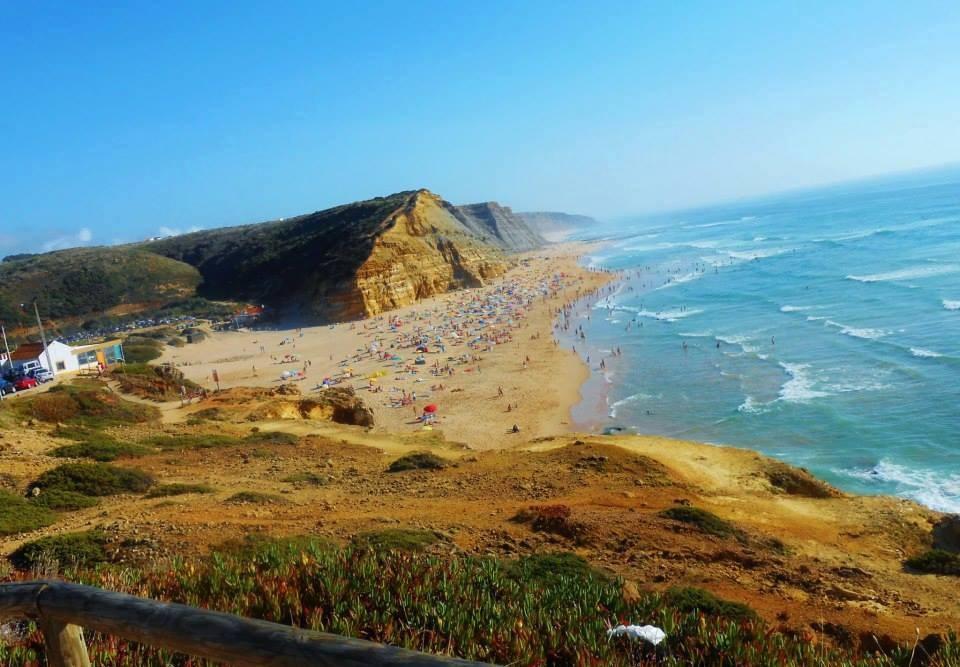
Não se pode ignorar o facto de que quando algum extrangeiro fala mal de Portugal (sem razão) sobe-me o sangue á cabeça, e que quando esses mesmos extrangeiros tentão informar-me a mim, uma residente na Inglaterra sobre os ‘supostos’ modos ingleses derivados do preconceito cultural eu gosto de destacar antes as imensas maravilhas cultarais Inglesas e defendê-la como uma verdadeira patrióta.
E é isto que me leva a acreditar que stou realmente involvida numa crise de identidade nacional: é que os meus colegas Ingleses e Espanhois chamam-me de uma verdadeira patrióta Portuguesa, e esses mesmos amigos Espanhois e Portugueses chamam-me e uma verdadeira patrióta Inglesa (o que supostamente não faría sentido já que nem sequer o direito de votar nas eleições gerais Inglesas tenho).
Como já falo Inglês desde uma idade muito jóvem- (algo muito favoravél para quem queira o dominio perfeito de um idioma) e como sempre falei e estudei o Português eu tenho a vantagem de ser completamente bilingual sem uma única identidade nacional.



Como alguém que acredita realmente que a cultura se estabelece principalmente no idioma e na lingua, esta mesma questão de ser bilingual e tão fluente numa lingua como a outra deixa-me extramamente confusa quando me perguntam: ‘Qual é a tua lingua materna’, o que para mim implica a mesma questão de ‘cultura materna’- Algo que sinceramente está compartido exactamente pelo meio.
E então, se vamos pela perspéctiva de que a cultura reside no idioma, quando me perguntam ‘em que idioma pensas’ eu sinceramente não sei como responder. Se estou pensando numa situação directamente associada com algo Inglês, sei que estarei a pensar em Inglês, e o mesmo sucede com o português. O dificil é quando penso em conceitos que nao tenhem nenhuma relação directa com nenhuma dessas linguas e quando estou tão focalizada que realmente nao sei em que formato linguístico estou a processar esses pensamentos. Já me disseram que sonho em Português e já me disseram que sonho em Inglês o que sugere que mesmo o meu subconsciente está dividido. Então, qual a resposta mais fácil quando me perguntam qual é a tua nacionalidade? Bem, o meu passaporte diz Portuguêsa. E de onde és? Bem, eu sou de Portugal e de Inglaterra. E para tí qual é a tua lingua materna? Para mim o Português e o Inglês. E se me perguntassem depois, a que lugar gostaria de pertencer o que diría? Pois isso não te sabería responder. A ideia de que alguém tem que pertencer a algum único sítio é antiquada num mundo tão mixto e globalizado. Sou cidadã do mundo, as margens e divisões na realidade não tenhem importancia se estamos realmente comfortaveis em aceitar que somos o que somos e que aí não há limites.











Ecco a voi alcune ricette semplici ed economiche, dove potrete fare anche sicuramente una bellissima e buonissima figura! Qui sotto verano raffigurate i piatti con le loro ricette! Spero a tutte le persone che proverano a fare queste semplici capolavori, un grande buon appetito! Vi presento il menu!

Primo Piatto: Melanzane alla parmigiana velocissime: Tagliate a fette 300g di melanzane con la buccia, adagiatele in una teglia e infornate a 180° per 20 minuti. Intanto preparate il sugo di pomodoro mettendo in un pentolino l’olio extra vergine di oliva, uno spicchio di aglio, 400g di passata di pomodoro e cuocete per 15 minuti. Quando il sugo è pronto togliete l’aglio e unite 4 foglie di basilico lavate, asciugate e spezzettate. Riprendete la teglia con le melanzane e mettete su ciascuna fetta un filo di olio, sale, sugo di pomodoro, 70g di formaggio fresco di pecora tagliato a fettine e dell'altro basilico spezzettato. Rimettete in forno a 180° per altri 20 minuti.

Secondo Piatto: Trofie al pesto e pomodorii: Una pasta veramente veloce, gustosa ed economica! Per prima cosa mettete 160g di pesto in un contenitore ed aggiungete 15 pomodorini tagliati in quattro pezzi, una manciata di pinoli leggermente tostati in padella, e 30g di cacio ricotta grattugiato, ma non finemente. A questo punto fate cuocere 250g di trofie e unitele poi al condimento. Questo piatto Si puo' servire sia caldo, che freddo, ma rimane comunque buonissimo.

Desser: Tortino esplosivo: Sciogliete a bagnomaria 120g di burro e 60g di cioccolato fondente. Montate 4 uova e 80g di zucchero, aggiungetevi la cioccolata, 150g di farina e un cucchiaino scarso di lievito. Mettete in forno per 7/9 minuti, a seconda della tipologia del vostro forno: il tortino si toglie quando si forma una crepa al centro. Facilissimo! Per piacere non vi scordate un bel cafe espresso e un limoncello!
Despite the diverse cultural differences between West Africans, we could probably all agree on one common denominator: Jollof rice. Jollof rice, also known as J. Rice or “Party rice”, is without question of a doubt the most readily eaten food by West Africans. Originally known as “Benanchin” – one pot rice, Jollof rice is primarily made with rice, tomatoes, tomato paste, onions, scotch bonnet peppers, salt, spices and vegetable oil. However, different African countries each use a unique ingredient that distinguishes one from the other. For example, in Gambia, they bake their rice, Cameroonians add coconut milk, Ghanaians add cray fish and scotch bonnet chilli, while Nigerians when making the rice for a special occasion, cook with firewood to give it a distinct smoky burnt flavour. This is where the nickname “party rice” originated. The origins of Jollof rice have led to many great debates, particularly amongst Nigerians and Ghanaians. The question always posed is, “Who invented Jollof rice and which country’s rice tastes better?” Jollof rice is said to have been invented by the “Wolof” people, from Senegal, thus none of those countries above can claim the credits of innovating the dish. The main distinction between Ghanaian and Nigerian Jollof rice is the actual rice used, Ghanaian’s tend to use basmati rice, whereas Nigerians use long grain rice. The other differences are in the spices used and the fact that Ghanaian’s do not usually par-boil their rice, whereas most often Nigerians do. In the end, we cannot say there is one perfect recipe. Even within the countries, people prepare their rice differently, with different spices and ‘family secret’ ingredients being used. I have tasted Jollof rice in several countries, and it is always fantastic. Food is subjective, and it all boils down to one’s personal preference.
Είναι γεγονός ότι η σύγχρονη τεχνολογία έχει επιφέρει πολλές αλλαγές στην καθημερινή μας ζωή. Με κάθε τρόπο, ερχόμαστε καθημερινά σε επαφή με πολιτισμούς διαφορετικούς από τον δικό μας. Η μετακίνηση από χώρα σε χώρα, από ήπειρο σε ήπειρο, είναι πλέον πολύ πιο εύκολη χάριν στα νέα μέσα μεταφοράς. Μέσω των ΜΜΕ, μπορούμε να μαθαίνουμε για αυτά που συμβαίνουν σε ολόκληρο τον κόσμο ενώ καθόμαστε αναπαυτικά στον καναπέ μας. Επιπλέον, η γενικότερη πολιτική της παγκοσμιοποίησης ενισχύει και ενεργά παροτρύνει την εξοικείωση με τον κόσμο γύρω μας με οποιονδήποτε τρόπο. Ως εκ τούτου, η γλωσσομάθεια αποτελεί πλέον ανάγκη για την καθημερινότητά μας, την επίτευξη των στόχων μας, για την ίδια μας την επιβίωση, μέσα σε ενα πολυπολιτισμικό περιβάλλον.
Δυστυχής συνέπεια αυτής της αναγκαιότητας είναι η ανάδειξη των γλωσσών ως ένα απλό εργαλείο, ως ένα σύνολο οργανωμένων «κραυγών» που οφείλεις να μάθεις προκειμένου να πετύχεις. Κατά συνέπεια, η εκμάθηση γλωσσών είναι μια επιβεβλημένη προοδευτική αγγαρεία, η οποία σε δεσμεύει να αναπτύξεις ικανότητες που πιθανόν ενδόμυχα να μην αισθάνεσαι ότι χρειάζεσαι. Είναι, λοιπόν, δύσκολο, στο πλαίσιο αυτής της βεβιασμένης διαδικασίας να αναδειχθεί η γλωσσομάθεια σε μια μορφή ύψιστης παιδείας, και να αποδοθεί ένα βαθύτερο νόημα σε αυτήν.
Κατ’αρχήν ας αναλύσουμε την έννοια της γλώσσας. Η γλώσσα αποτελεί το αποτέλεσμα της εξελικτικής διαδικασίας ενός συνόλου ανθρώπων που ονομάζεται λαός κατά την διάρκεια της διαμονής του ανά τους αιώνες σε ένα συνεχώς μεταβαλλόμενο και αναπτυσσόμενο κομμάτι γης που ονομάζεται χώρα. Με λίγα λόγια, η γλώσσα είναι ένα από τα κυρίως χαρακτηριστικά ενός έθνους, και χρωματίζεται αποκλειστικά από αυτό. Η ίδια και τα συστατικά της περιγράφουν το «πνεύμα» του. Αξίζει, επίσης, να αναφερθεί ότι οι ήχοι που συνθέτουν κάθε λέξη και η γενικότερη μορφή μια γλώσσας είναι απόρροια του κλίματος και της μορφολογίας της χώρας στην οποία αυτή αναπτύχθηκε. Είναι, λοιπόν, φοβερή προσβολή να θεωρούμε την εκμάθηση γλωσσών μια απλή μηχανική διαδικασία που μετράει μόνο, παραδείγματος χάριν, στην μελλοντική μας εύρεση εργασίας. Κάθε γλώσσα μας προσφέρει μοναδικές
πληροφορίες σχετικά με τους ανθρώπους που την μιλούν και το περιβάλλον τους, μας δίνει μια ιδέα της κουλτούρας που αντιπροσωπεύει. Αποτελεί ένα μέσον για να γίνουμε εμμέσως μέλη αυτής της κουλτούρας, μιας που μας περιγράφει λεπτομερώς έναν πολιτισμό τον οποίο, ενώ ενδεχομένως δεν τον γνωρίζουμε από κοντά, μπορούμε να τον κατανοήσουμε και να τον οικειοποιηθούμε. Σε πιο προσωπικό επίπεδο, η εκμάθηση γλωσσών είναι το κλειδί για την διαπολιτισμική επικοινωνία, γεγονός που σημαίνει ότι όχι μόνο είμαστε σε θέση να έρθουμε πιο κοντά σε έναν άλλον πολιτισμό, αλλά μπορούμε να έρθουμε και σε επαφή με τα μέλη του, καταφέρνοντας έτσι να ενστερνιστούμε πιο
έντονα αυτόν τον διαφορετικό κόσμο. Μέσω της εκμάθησης μιας γλώσσας, τέλος, αποκτούμε σφαιρική εικόνα του κόσμου, και μαθαίνουμε να σεβόμαστε, να
εκτιμούμε, και να ενισχύουμε την
πολιτισμική ταυτότητα άλλων λαών,
καλλιεργώντας έτσι ένα πανανθρώπινο
αίσθημα ενότητας και ισχύος.
Είναι επομένως σκόπιμο να αντιταθούμε
στην τυπική ρηχή προσέγγιση της
γλώσσας και να τονίζουμε την πραγματική
σημασία της γλωσσομάθειας, διότι είναι
γεγονός ότι με κάθε γλώσσα που
μαθαίνουμε προωθούμε την ίδια μας την
διάνοιά, αλλά και συμμετέχουμε στην
δημιουργία ενός καλύτερου κόσμου.
/

ΣΗΜΑΣΙΑ ΤΗΣ ΓΛΩΣΣΟΜΑΘΕΙΑΣ Κατερίνα Χελιώτη
一年前的我,带着沉重的心情,搭上了前 往英国的班机,黯然离开了最熟悉地方, 和最熟悉的人与面孔告别。回想,离开的 一个刹那,心中万分不舍,但告诉自己告
别后就不要回头看,因为回头看,心里就
会更舍不得。告诉自己,既然决定了前方
的路要怎么走,就一定要勇往直前,向追 求梦想的道路迈进。一年前的我,带着一 份执着,义无反顾,踏上了人生新的旅 程。
来到伯明翰这个新的城市,难免对未来的挑战充满畏惧。人海茫茫,看见这些陌生的面孔,不知是否能够适应 新的环境或结交到志同道合的朋友。身为海外留学生,当时最大的担忧就是如何融入当地人圈子。来到英国留 学之前,自己很少出国,也从不喜欢酒吧夜店或各种参加社交活动,本身比较喜欢私底下在安静的地方与他人 交流谈心。但这一年来,我觉得自己最大的收益就是能够认识到许多来自不同文化背景的朋友。虽然在语言上 可能有所分别,但是很庆幸大家都这么亲切,热忱,并且在交流的时候抱着开放的态度。也正是这个因素让我 感到自在,毫无压力,所以在过程中能够对他们生活和思维习惯,历史与文化,产生更深一层的了解。
回顾这一年来的点点滴滴。。。
一年前的我,一年后的我,学会了。
学会如何照顾自己,自己打理日常生活的安排。学会独立,依靠自己,凭自己的能力克服困难。有时候觉得自 己在孤军作战,但从中学会勇敢,坚强。
一年前的我,一年后的我,懂得了。
懂得如何去珍惜身旁最珍贵的人,事,物。夜深人静的时候,想家了。没有亲人与好友的陪伴,更懂得去珍惜 拥有的幸福。懂得失败的心酸失落,成功的艰辛。只有在磨难中苦苦煎熬,才会明白人生的曲折。
一年前的我,一年后的我,领悟了。
领悟到 “天没有不散之筵席” 这人生道理。人会因为各种原因而分离,与好友短暂的分离,只能真心祝福,志
在四方,步履有方向。只盼望相聚的那一天,成败不论切莫将昔日遗忘。

时间在变,人也在变,很多事在我们没发觉之前早已经面目全非了。我们却不能因为时间的流逝或人生万物的 变化而停下脚步。我们唯能以坚定,客观的态度去面对周遭的变化,活在当下,把美好的回忆,好好存在心 里。
一年前的我,一年后的我。







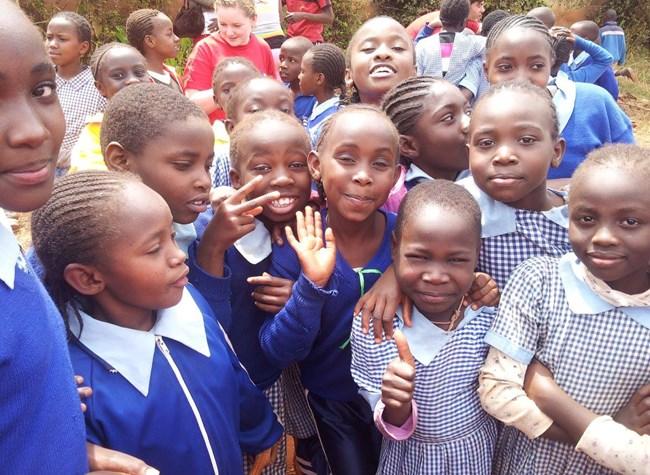



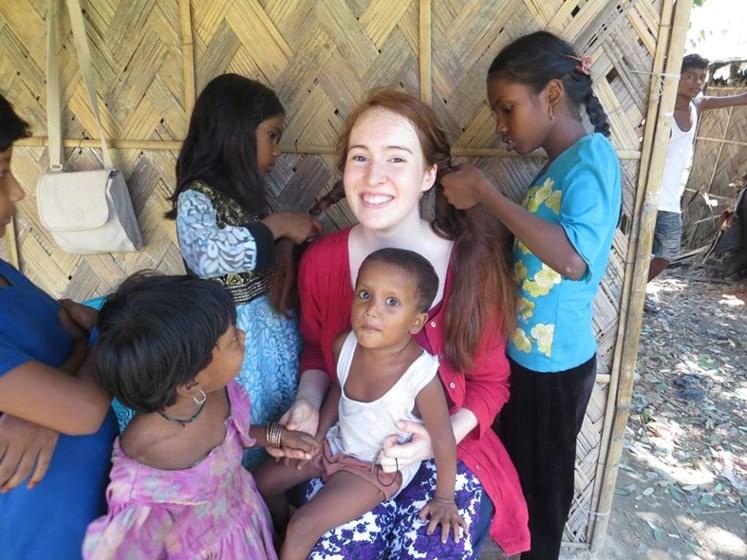

Volunteering abroad is a valuable learning experience that many of us wish we could undertake, but in reality, few take on the challenge. Your time at university is the perfect chance to take advantage of all the volunteering opportunities available to you. Intervol is the International Volunteering Project at the University of Birmingham and currently we are recruiting for our 2016 summer projects. We work with communities in Bulgaria, Ecuador, Kenya and India, focusing on areas such as childcare, education, animal rehabilitation and social development. Having recently returned from working in orphanages in Bulgaria, I strongly encourage everyone to take part in the fulfilling experience of volunteering abroad.

Working in a foreign country is a great chance to combine your love of travelling with the opportunity to help those less fortunate, making it a rewarding and humbling trip. Through experiencing a new culture and language, many of our volunteer’s stress how on their return they felt like a more evolved and better person and with recognition of your hard work, volunteers are keen to return to the communities they worked with. Moreover, undertaking such a unique opportunity helps make your CV stand out, as working abroad develops the transferable skills that employers look for. Lastly, the most important reason to volunteer abroad is remembering that life is all about challenging yourself and there is no better feeling that stepping outside your comfort zone and trying something new! Yes, you work extremely hard but its so rewarding and great fun!
Applications are still open for Intervol’s Kenya and India projects this summer, so if you would like more information please email:
birmingham@intervol.org.uk


